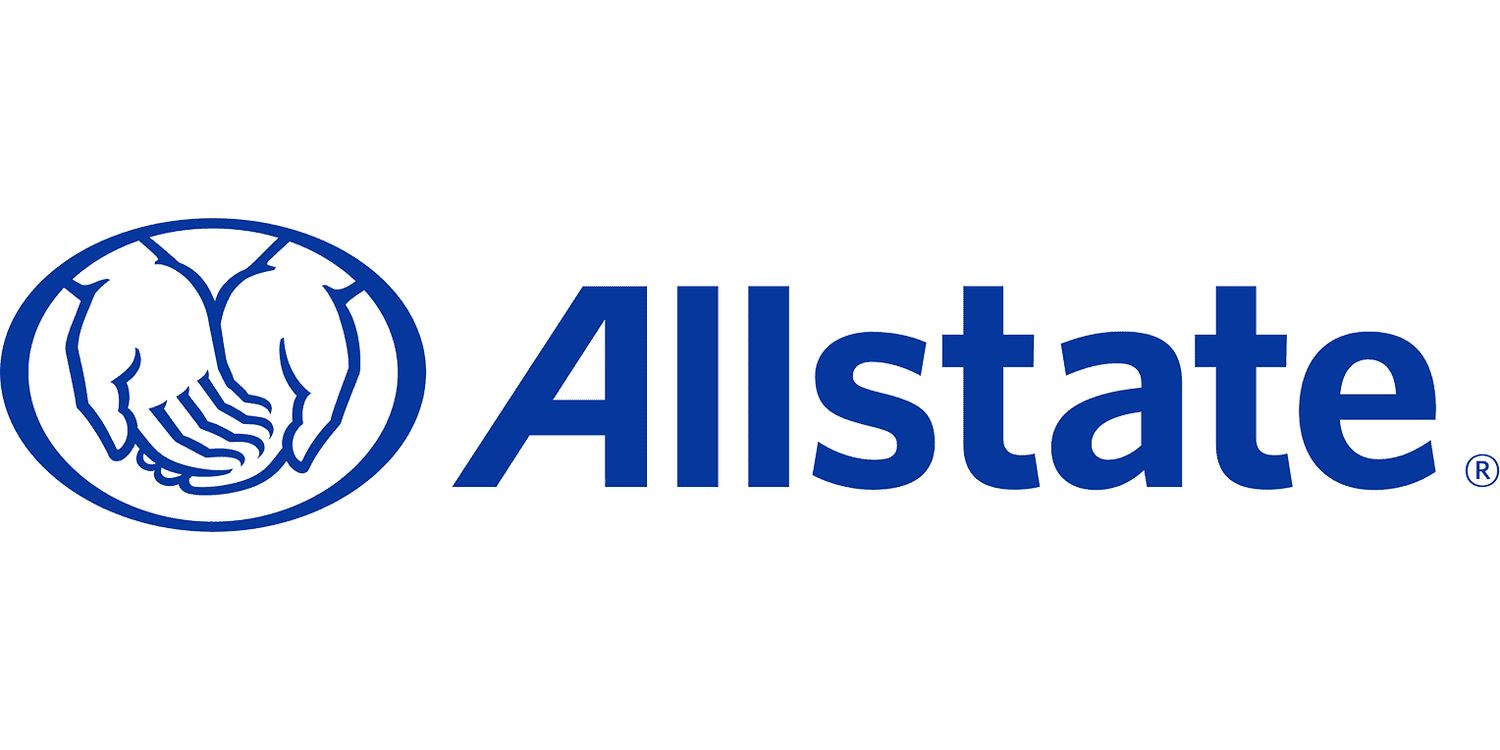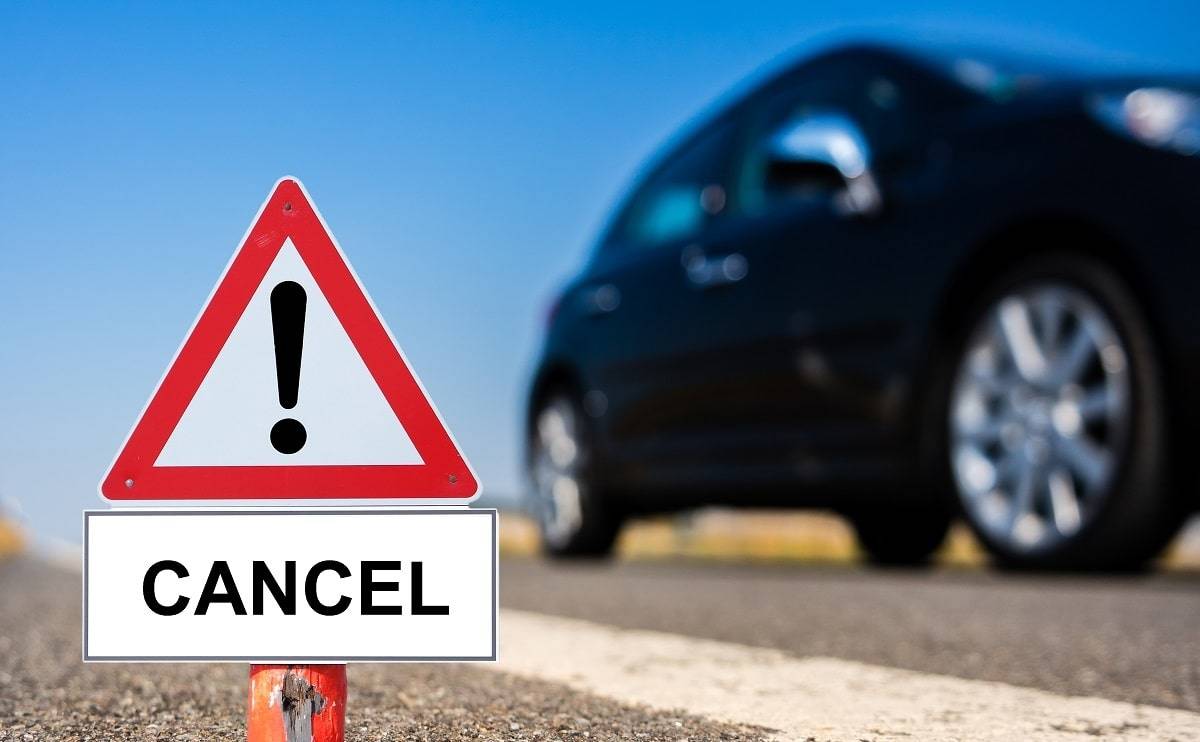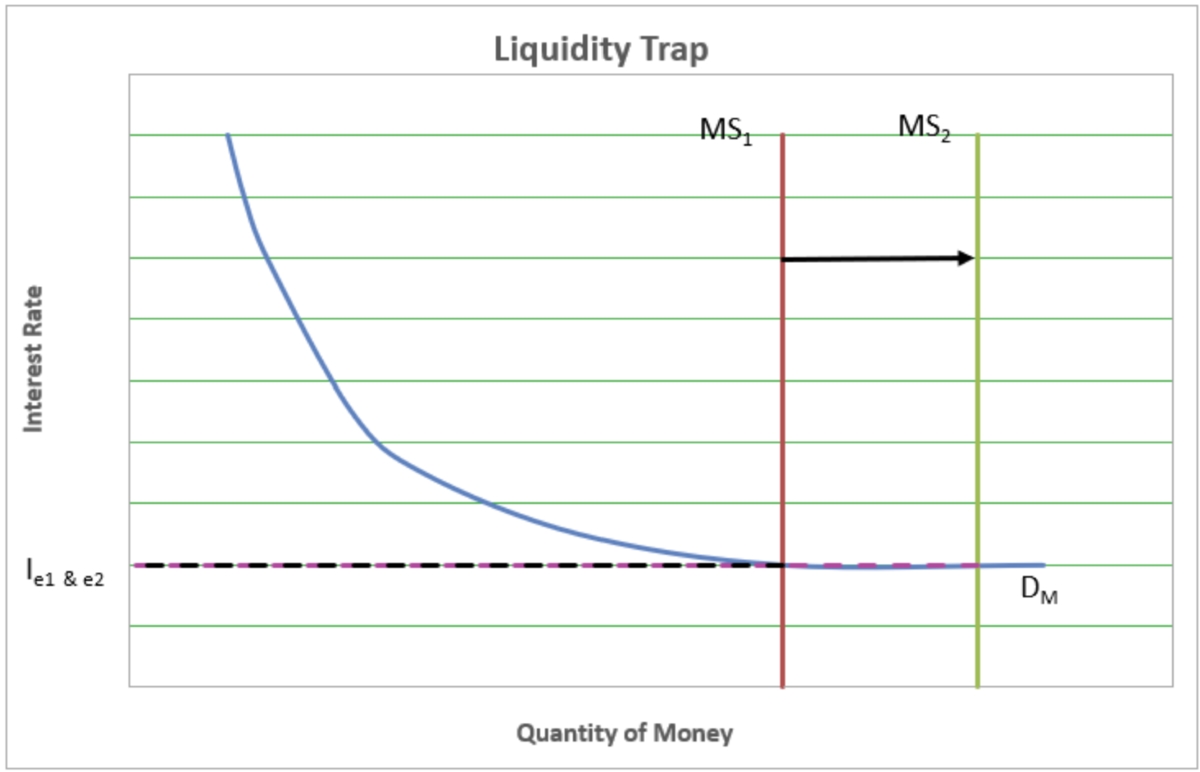Home>Finance>What Happens If My Car Insurance Is Cancelled Due To Non-Payment?


Finance
What Happens If My Car Insurance Is Cancelled Due To Non-Payment?
Published: November 16, 2023
If your car insurance is cancelled due to non-payment, you risk financial consequences. Learn what happens and how to manage your finances in this situation.
(Many of the links in this article redirect to a specific reviewed product. Your purchase of these products through affiliate links helps to generate commission for LiveWell, at no extra cost. Learn more)
Table of Contents
- Introduction
- Understanding Car Insurance Cancellation
- Reasons for Car Insurance Cancellation due to Non-Payment
- Consequences of Car Insurance Cancellation
- Possible Actions to Take If Your Car Insurance is Cancelled
- Reinstating Car Insurance after Cancellation
- The Importance of Maintaining Car Insurance Coverage
- Conclusion
Introduction
Car insurance is an essential financial safety net that protects both you and your vehicle in the event of accidents, damages, or theft. It is a legal requirement in most states, ensuring that drivers have the means to cover potential liabilities. However, if you fail to fulfill your financial obligations and your car insurance policy is cancelled due to non-payment, it can have serious consequences.
Car insurance cancellation due to non-payment means that you have failed to pay your insurance premium within the specified timeframe. This can occur for various reasons, such as financial constraints or simply forgetting to make the payment. Regardless of the reason, it is crucial to understand the implications of such cancellation and take appropriate actions to rectify the situation.
In this article, we will delve into the reasons why car insurance may be cancelled due to non-payment, the potential consequences of such cancellation, and the steps you can take to reinstate your coverage. Understanding these aspects is essential for maintaining your financial security and legal compliance.
Understanding Car Insurance Cancellation
Car insurance cancellation occurs when the insurance company terminates your policy before its designated expiration date. This can happen for various reasons, with non-payment being one of the most common causes. It is essential to understand the process of car insurance cancellation to grasp its implications fully.
When you sign up for car insurance, you enter into a contract with the insurance company. This contract outlines your responsibilities as the policyholder, including the obligation to pay your premiums on time. Failure to meet this financial obligation can result in the insurance company cancelling your policy.
Car insurance policies typically have a grace period during which you can make late payments or catch up on missed payments without facing cancellation. The length of this grace period may vary depending on the insurance provider and state regulations. However, if you fail to make the required payments within this grace period, your policy may be cancelled.
It’s important to note that car insurance cancellation due to non-payment is a serious matter. It not only leaves you without insurance coverage but can also have long-term consequences on your driving record and ability to obtain coverage in the future. To avoid these issues, it’s crucial to understand the reasons behind car insurance cancellation due to non-payment and take preventative measures.
Reasons for Car Insurance Cancellation due to Non-Payment
Car insurance cancellation due to non-payment can occur for various reasons, often stemming from financial difficulties or oversight on the part of the policyholder. Understanding these reasons can help you avoid the pitfalls associated with non-payment and maintain continuous coverage for your vehicle.
1. Financial Difficulties: One of the most common reasons for car insurance cancellation due to non-payment is financial hardships. Life circumstances such as job loss, unexpected expenses, or a decrease in income can make it challenging to meet your financial obligations, including insurance premiums. If you find yourself struggling to make ends meet, it’s crucial to communicate with your insurance provider and explore alternative payment options or payment plans.
2. Lapse in Communication: Sometimes, car insurance cancellation occurs due to a breakdown in communication between the policyholder and the insurance company. This can happen if you change your contact information (such as phone number or address) without notifying your insurance provider. As a result, you may miss communication regarding payment reminders or policy updates, leading to non-payment and subsequent cancellation.
3. Lack of Awareness: Another reason for car insurance cancellation due to non-payment is simply forgetting to make the payment. With busy schedules and numerous financial responsibilities, it’s easy to overlook a payment deadline. To prevent this from happening, consider setting up automatic payments or setting reminders to ensure timely payment of your insurance premiums.
4. Insufficient Funds: Insufficient funds in your bank account at the time of the insurance premium withdrawal can also lead to non-payment and eventual cancellation. It’s important to maintain a sufficient balance in your account or have an overdraft protection plan in place to avoid this situation.
It’s crucial to remember that regardless of the reason, car insurance cancellation due to non-payment can have serious consequences. Therefore, it is essential to stay proactive, be aware of your financial situation, and communicate with your insurance provider if you encounter difficulties in making your premium payments.
Consequences of Car Insurance Cancellation
Car insurance cancellation due to non-payment can have significant consequences that impact both your financial well-being and legal standing. Understanding these consequences is crucial for your overall protection and compliance with the law.
1. Loss of Financial Protection: When your car insurance is cancelled due to non-payment, you are left without the financial protection that insurance provides. In the event of an accident, theft, or damage, you will be responsible for covering the costs out of your own pocket. This can be financially burdensome and may lead to significant financial setbacks.
2. Legal Penalties: In many states, driving without car insurance is illegal. If your policy is cancelled due to non-payment and you continue to drive without obtaining alternative coverage, you may face legal penalties such as fines, license suspension, or even criminal charges. These consequences can have long-term effects on your driving record and ability to obtain future insurance coverage.
3. Difficulty in Obtaining New Insurance: Car insurance cancellation due to non-payment can make it challenging to obtain new insurance coverage in the future. Insurance companies view policyholders with a history of non-payment as higher risk, and you may be subject to higher premiums or denied coverage altogether. Continuous coverage is not only important for financial protection but also helps maintain a favorable insurance record.
4. Impact on Credit Score: Car insurance cancellation due to non-payment can have a negative impact on your credit score. Late or missed payments can be reported to credit bureaus, which can lower your credit score. This can affect your ability to secure loans, credit cards, or favorable interest rates in the future.
5. Limited Liability Coverage: If you are involved in an accident while your car insurance is cancelled due to non-payment, you may be personally liable for any damages or injuries. This can leave you vulnerable to lawsuits and legal claims, potentially resulting in the loss of personal assets or wage garnishment.
It’s important to remember that car insurance is not just a financial safety net but a legal requirement in many jurisdictions. Failing to maintain continuous coverage by letting your policy be cancelled due to non-payment can have severe consequences that extend beyond your immediate financial situation. It’s crucial to be proactive in managing your insurance payments to avoid these detrimental outcomes.
Possible Actions to Take If Your Car Insurance is Cancelled
Discovering that your car insurance has been cancelled due to non-payment can be a stressful situation, but it is important to take immediate action to rectify the situation. Here are some steps you can take if your car insurance is cancelled:
1. Contact Your Insurance Provider: The first thing you should do is contact your insurance provider to confirm the cancellation and understand the reasons for it. Discuss your options and see if there is a possibility of reinstating your policy by making a late payment or setting up a payment plan. Keep in mind that the outcome may depend on your insurance company’s policies and state regulations.
2. Explore Alternative Insurance Options: If reinstating your policy with your current insurance provider is not possible, start exploring alternative insurance options. Contact other insurance companies and obtain new quotes to find the coverage that suits your needs and budget. Keep in mind that getting a new policy may be more challenging and expensive if you have a history of car insurance cancellation due to non-payment. Be prepared for potential higher premiums and stricter eligibility requirements.
3. Maintain Proof of Coverage: Regardless of whether you reinstate your policy or obtain a new one, it is crucial to maintain proof of insurance coverage. This documentation is often required when registering your vehicle, renewing your license, or in the event of an accident. Make sure to keep your insurance cards and any necessary paperwork in a safe and easily accessible place.
4. Review Your Budget: Assess your financial situation to ensure that you have enough resources to handle your insurance premiums going forward. Create a budget that accounts for all your expenses, including car insurance, and prioritize making timely payments to avoid future cancellations. Consider adjusting your lifestyle or seeking financial assistance if needed to ensure that you can meet your insurance obligations.
5. Improve Your Credit Score: If your car insurance cancellation was due to financial difficulties, take steps to improve your credit score. Pay your bills on time, manage your debt responsibly, and regularly check your credit report for accuracy. A higher credit score can help you obtain more favorable insurance rates in the future and decrease the likelihood of cancellation due to non-payment.
It’s important to remember that prevention is always better than dealing with the consequences of car insurance cancellation due to non-payment. Set up automatic payments or reminders to ensure timely premium payments and communicate with your insurance provider if you encounter any financial difficulties. By being proactive and responsible, you can avoid the stress and setbacks associated with insurance cancellation.
Reinstating Car Insurance after Cancellation
If your car insurance has been cancelled due to non-payment, it may still be possible to reinstate your policy. Reinstating your car insurance can provide you with the financial protection you need and help maintain a favorable insurance record. Here are some steps you can take to reinstate your car insurance after cancellation:
1. Contact Your Insurance Provider: Reach out to your insurance provider as soon as possible and express your desire to reinstate your policy. Discuss the reasons for the cancellation and see if there are any options available to you. Some insurance companies may allow you to make a late payment or set up a payment plan to reinstate your coverage.
2. Pay Outstanding Premiums: If the cancellation was due to non-payment, make arrangements to pay any outstanding premiums as soon as possible. Discuss with your insurance provider the accepted methods of payment and any applicable fees or penalties. Set a timeline for payment and adhere to it to ensure that your coverage is reinstated promptly.
3. Provide Proof of Insurance: Depending on your insurance provider’s requirements, you may need to provide proof of insurance before your coverage can be reinstated. This can include submitting necessary documentation or filling out specific forms. Be prepared to provide the required information to expedite the reinstatement process.
4. Verify Coverage Details: Before your policy is reinstated, take the time to review your coverage details with your insurance provider. Ensure that all the necessary coverages are included and that any additional endorsements or modifications are accurately reflected. This is an opportunity to make any necessary adjustments to your policy to better meet your needs.
5. Stay Current with Future Payments: It is important to make a commitment to staying current with your future insurance premiums. Set reminders or automate your payments to avoid any future cancellations due to non-payment. Consider working with your insurance provider to establish a payment plan if needed to ensure that you can meet your financial obligations.
Reinstating your car insurance after cancellation requires open communication with your insurance provider and a willingness to fulfill your financial responsibilities. Remember that the process may vary depending on your insurance company’s policies and state regulations. By taking immediate action and working closely with your insurance provider, you can reinstate your coverage and regain the peace of mind that comes with having car insurance.
The Importance of Maintaining Car Insurance Coverage
Maintaining car insurance coverage is crucial for several reasons, providing both financial protection and legal compliance. Understanding the importance of having car insurance can help you make informed decisions and prioritize your financial well-being. Here are some reasons why maintaining car insurance coverage is essential:
1. Financial Protection: Car insurance provides financial protection in the event of accidents, damages, or theft. It helps cover the costs of repairs or replacements for your vehicle, medical expenses for injuries sustained in an accident, and liability for damages caused to other people’s property or injuries they may suffer. Without insurance coverage, these costs would have to be paid out of pocket, potentially causing significant financial strain.
2. Legal Compliance: In most states, having car insurance is a legal requirement. Driving without insurance can result in fines, license suspension, or other legal penalties. By maintaining car insurance coverage, you stay compliant with the law and avoid any negative legal consequences that may arise from driving without insurance.
3. Protection Against Uninsured Drivers: Even if you are a responsible driver who carries insurance, there’s still the risk of being involved in an accident with an uninsured or underinsured driver. Having uninsured/underinsured motorist coverage as a part of your car insurance policy helps protect you financially in such situations by covering your medical expenses and property damage caused by the at-fault driver.
4. Peace of Mind: Knowing that you have car insurance coverage offers peace of mind while driving. It provides a sense of security, knowing that you are financially protected in case of unforeseen events. This peace of mind allows you to focus on the road and drive with confidence.
5. Continuous Coverage Benefits: Maintaining continuous car insurance coverage can have long-term benefits. Insurance companies often offer lower premiums to policyholders with a continuous coverage history, as it signifies a lower risk of claims. Additionally, continuous coverage helps maintain a favorable insurance record, making it easier to obtain future insurance coverage at affordable rates.
6. Lender Requirements: If you have financed your vehicle, your lender may require you to maintain comprehensive and collision coverage until the loan is paid off. Failure to maintain the required coverage may trigger additional fees or penalties imposed by the lender and may even result in the lender purchasing insurance on your behalf, which is usually more expensive.
Maintaining car insurance coverage is not just a legal obligation, but a wise financial decision. It provides the necessary protection in case of accidents, helps you stay compliant with the law, and offers peace of mind while driving. By prioritizing car insurance and ensuring that your coverage is up-to-date, you are taking a proactive step towards safeguarding your financial well-being and protecting yourself on the road.
Conclusion
Car insurance cancellation due to non-payment can have serious consequences, both financially and legally. Understanding the reasons behind car insurance cancellation, the potential consequences that follow, and the steps you can take to rectify the situation is crucial for maintaining your financial security and legal compliance.
Whether it’s due to financial difficulties, a lapse in communication, or simply forgetting to make a payment, car insurance cancellation can leave you without the protection you need and potentially facing legal penalties. It’s important to be proactive and take immediate action if your car insurance is cancelled due to non-payment.
Reaching out to your insurance provider to discuss the situation and explore options for reinstatement is the first step. If reinstating your policy is not possible, researching and obtaining new insurance coverage should be a priority to ensure ongoing protection for yourself and others on the road.
Furthermore, maintaining car insurance coverage is essential not only for financial protection but also for legal compliance. It provides the necessary coverage in case of accidents, protects you against uninsured drivers, and offers peace of mind while driving. In addition, continuous coverage helps maintain a favorable insurance record and can lead to more affordable premiums in the long run.
Remember to prioritize your car insurance payments, stay on top of your financial obligations, and communicate regularly with your insurance provider. By doing so, you can avoid the stress and setbacks associated with car insurance cancellation due to non-payment and ensure that you are adequately protected on the road.
Car insurance is more than just a requirement; it is a vital financial safety net that provides peace of mind and protects you from the unpredictable. So, be responsible, stay informed, and maintain continuous car insurance coverage to safeguard your financial well-being and drive with confidence.














